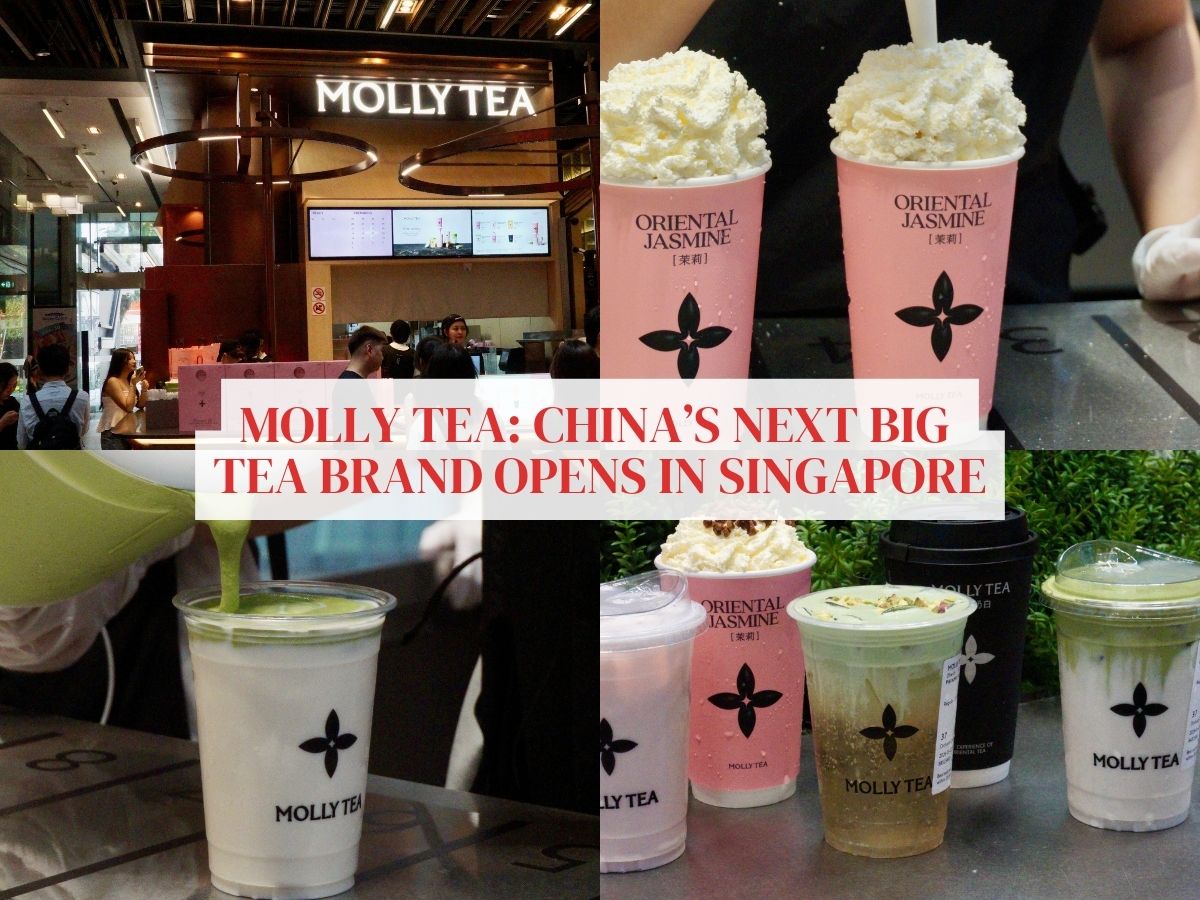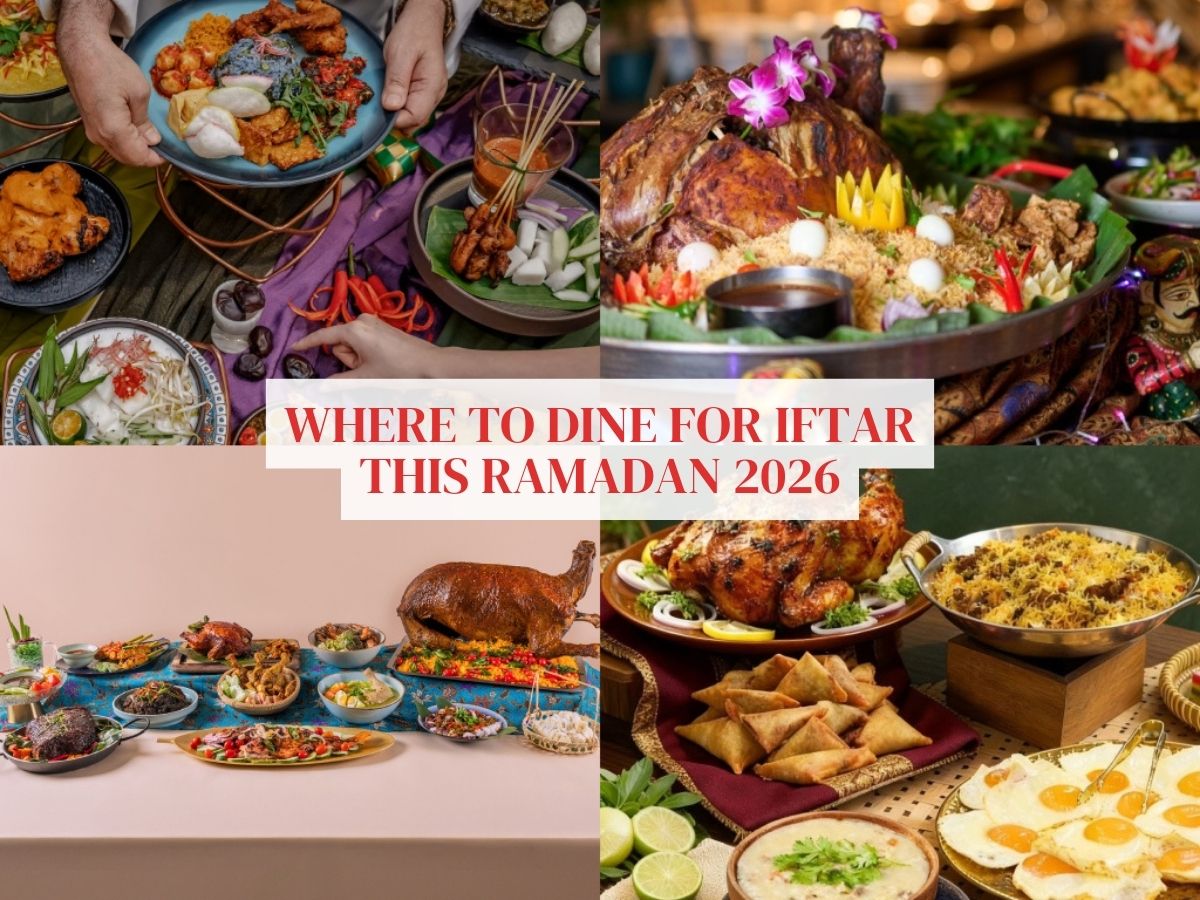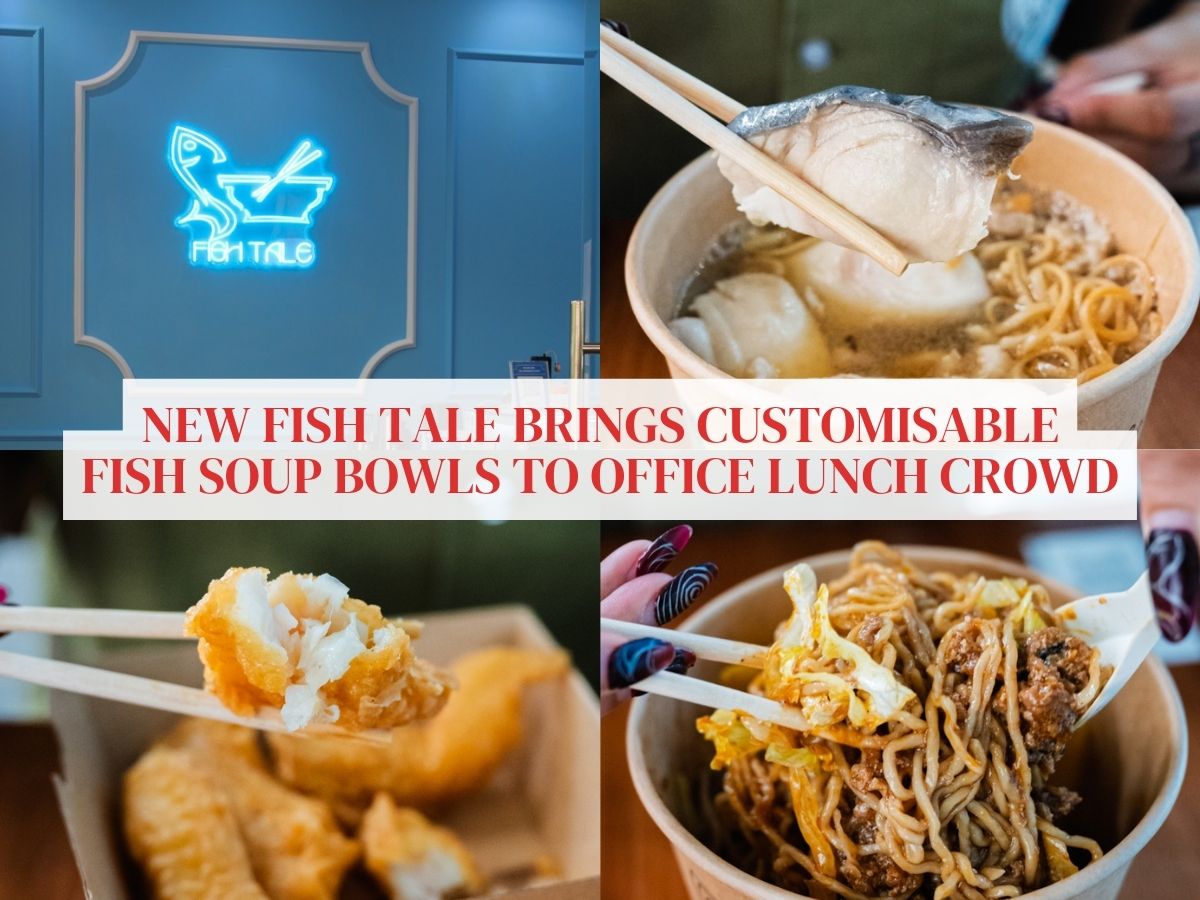Genista Lane Kopi: Mobile coffee cart concept gives traditional kopi a fresh grind
- Former product manager Manfred Ho co-founded Genista Lane Kopi with two other partners, a mobile coffee cart that specialises in traditional Nanyang coffee and tea with a contemporary twist.
- After debuting at Manfred’s grandmother’s 96th birthday party and going viral on social media, the operation has evolved from a single cart to a home-based kitchen while the founders plan their next expansion phase.
- The brand distinguishes itself through carefully crafted blends of traditional Robusta and modern Arabica beans, paired with reimagined Singaporean breakfast staples like kaya toast that honour heritage while embracing innovation.
The afternoon heat radiates off the concrete in shimmering waves, but behind the sleek lines of the Genista Lane Kopi cart, 29-year-old Manfred Ho moves with practised rhythm.
Orders fly in rapid succession and sweat beads his forehead as he takes orders, brews coffee and manages the steady stream of customers. Yet he doesn’t miss a beat, calling out names with genuine warmth and an easy smile, adding a personal touch to every customer’s experience.
It’s a far cry from Manfred’s previous life hunched over his desk in air-conditioned tech offices. Now, watching him work the compact mobile set-up with a concentrated focus, you’d think he’d been slinging traditional Nanyang coffee his whole life.
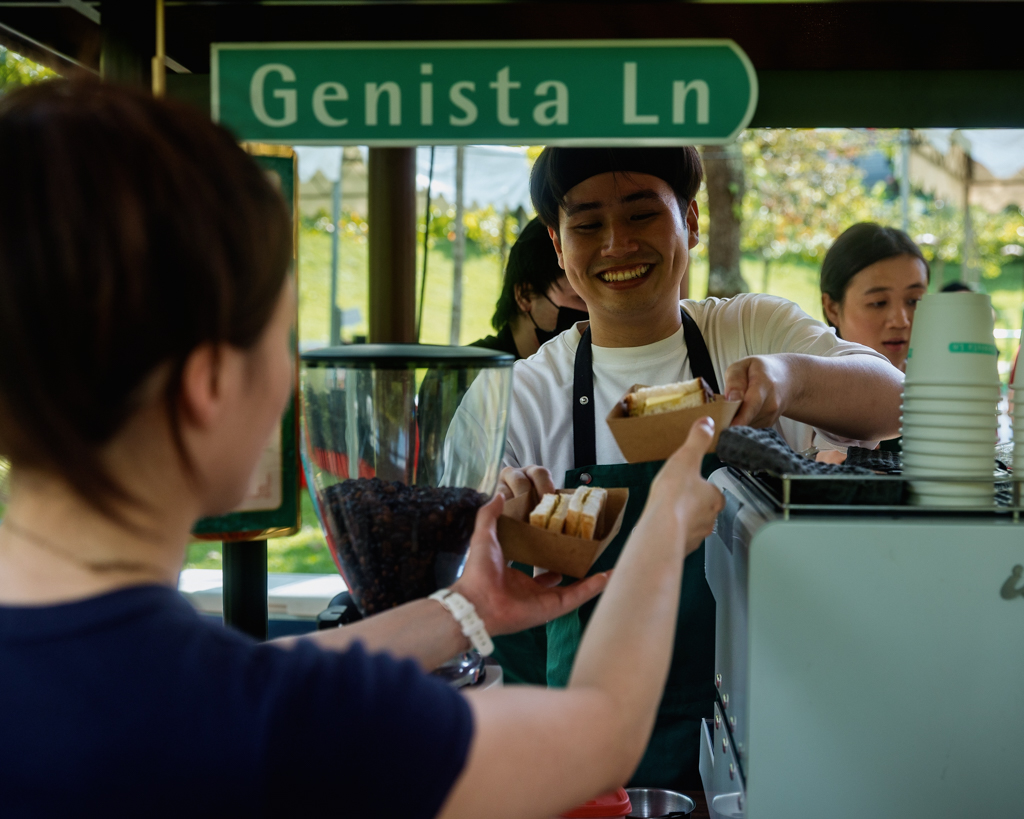
“I’m not your typical F&B guy with a legacy family recipe, or 20 years of culinary fine arts experience,” Manfred admits with characteristic directness. He added that most of what he learnt came from YouTube and approaching coffee uncles around Singapore.
From tech to tradition
Manfred spent several years as a product manager in Singapore’s tech scene, chasing what he called a “god-like product” — that elusive breakthrough that would define his career. But after hitting wall after wall, a different kind of restlessness set in for him.
“I pondered to myself: ‘If I’ve got to work for another 30-plus years, I’d rather be ‘hand itchy’ now and regret later,’” he said.
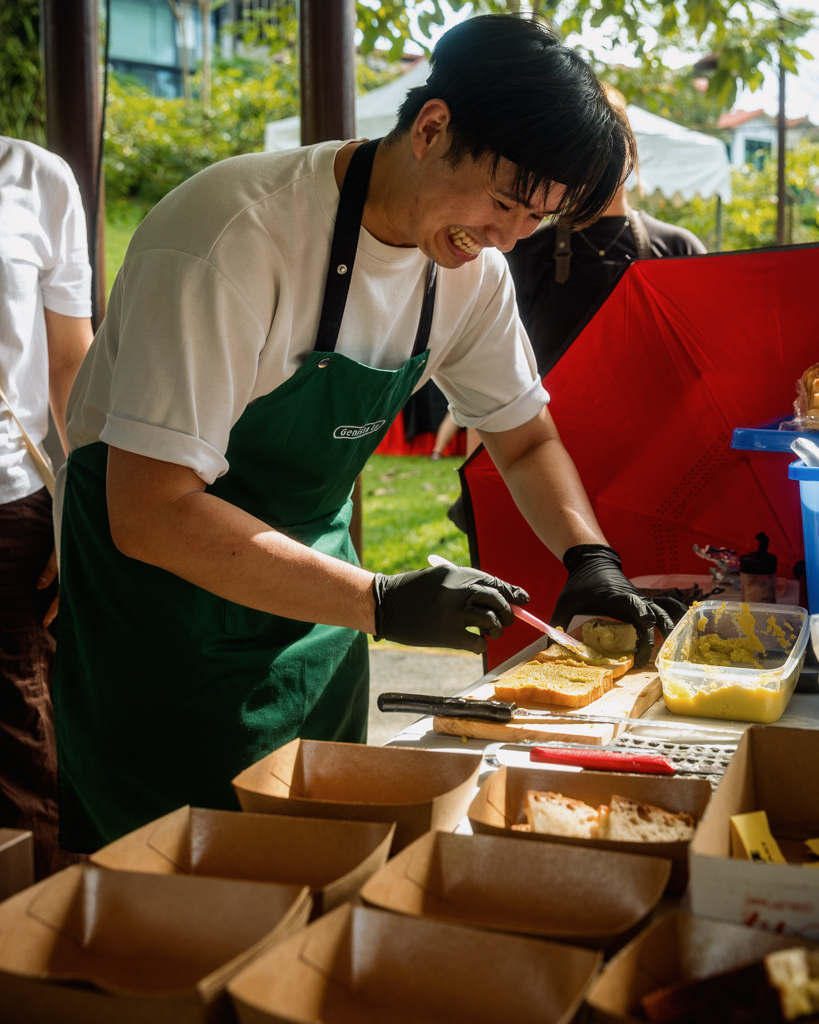
What emerged wasn’t just a career change, but a mission that would mirror his own transition from a modern tech world, to traditional coffee service, taking practices deeply rooted in Singaporean heritage and giving it a contemporary edge.
The lightbulb moment came while helping a friend install point-of-sale (POS) systems for cafes and restaurants.
While conversing with F&B owners who lamented Singapore’s crushing rental costs, Manfred’s product manager brain kicked into overdrive: How can he maximise foot traffic, whilst minimising the overhead cost of rental?
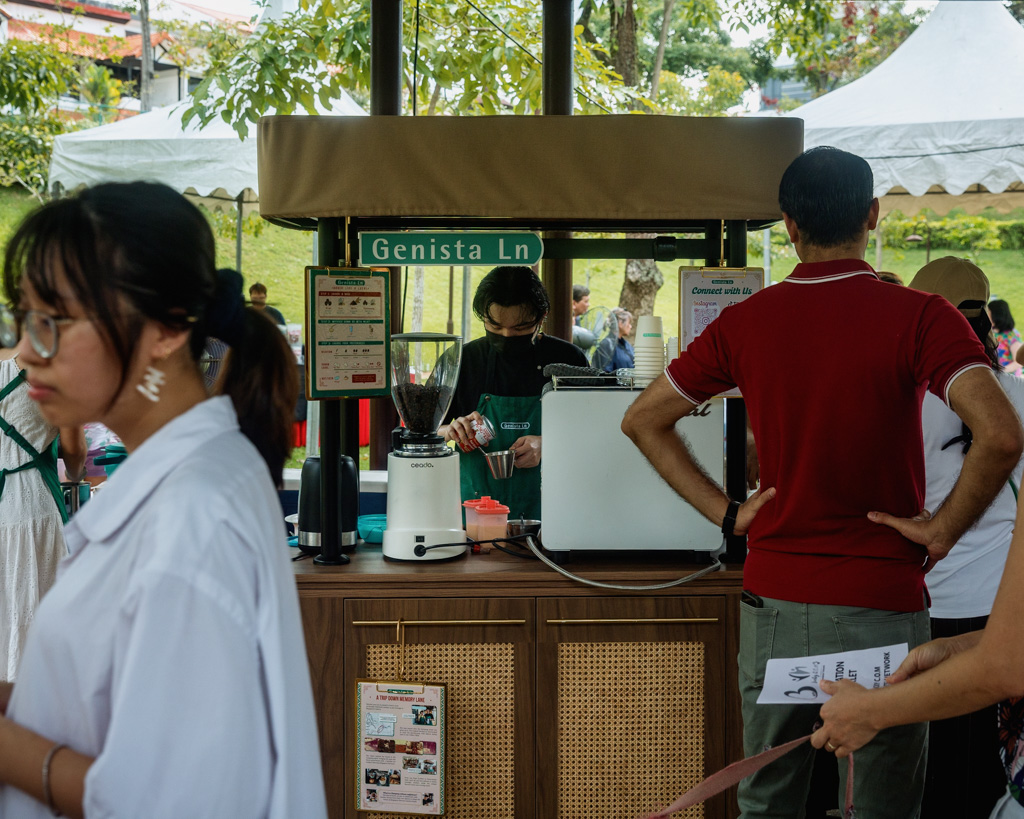
The answer came to him in the form of lemonade stands. But instead of sugary drinks, Manfred envisioned something more quintessentially Singaporean — a mobile coffee cart specialising in traditional Nanyang coffee and tea.
“We test fast, fail fast, then rinse and repeat until we get it right,” Manfred says, unconsciously slipping into the corporate-tech vernacular that still peppers his speech.
The agile methodology that governed his tech career still drives his start-up — pop-up here, pivot there, and constantly iterate until you find the sweet spot.
Brewing with backup
The name, Genista Lane, carries layers of meaning behind it. Not only does it pay homage to an old street in Singapore, but it also honours Manfred’s mother, who grew up living there.
His aunt hand-sewed the original aprons and the cart’s canopy, while her daughter, Manfred’s cousin and co-founder, Iv Toh, 45, designed the cart’s sleek profile.
Rounding out the founding team is Shankar Tamilselvam, 29, a close friend who joined Manfred in building the kopi cart from the ground up.
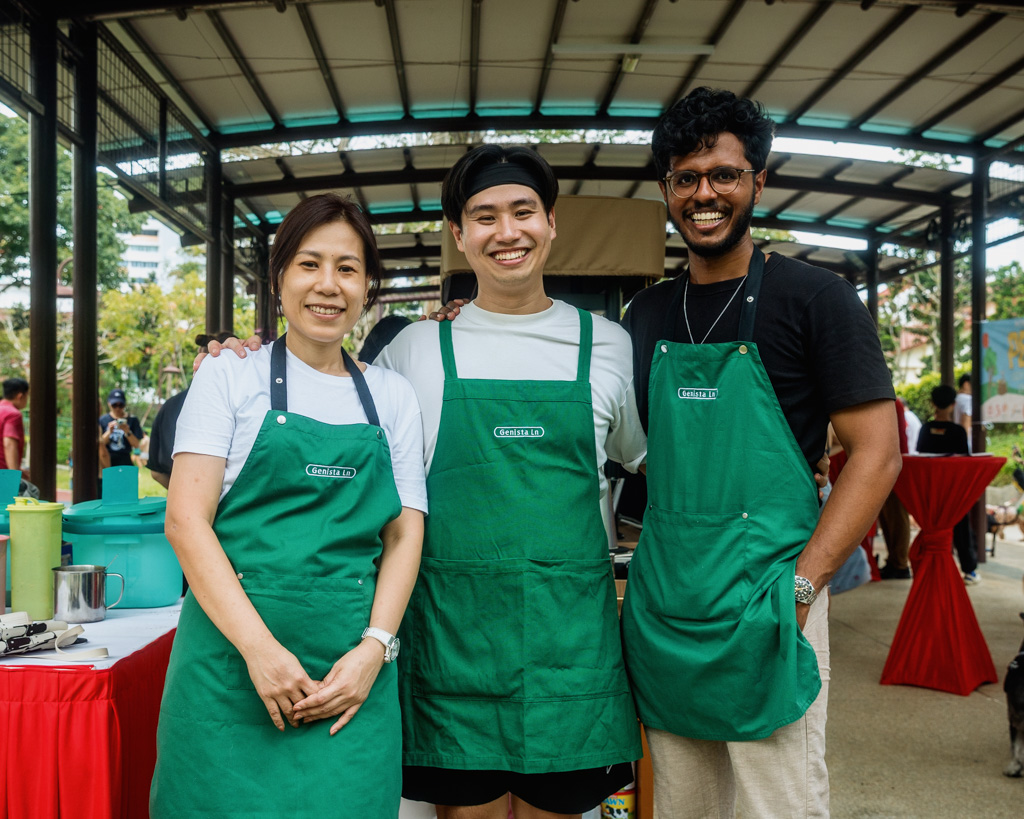
The kopi cart even got its first real-world test at a family gathering — his grandmother’s 96th birthday party hosted under an HDB void deck. A friend captured the novel idea and posted a TikTok that went viral. From there, Manfred’s coffee cart idea quickly took shape.
“My parents are pretty nonchalant people,” Manfred says, when asked about his parents’ reaction to the career shift. “But my mom joked that she can’t really brag about my job during Chinese New Year anymore.”
Within months, Genista Lane Kopi cart was serving everyone, from wedding parties, to community events.
At one 500-person event, Manfred even had the surreal experience of brewing a cup of Nanyang coffee for Mr Heng Swee Keat, then-Deputy Prime Minister of Singapore.
The perfect blend
While Singapore’s cafe scene chases third-wave coffee trends, Genista Lane Kopi doubles down on traditional Nanyang coffee.
“It’s also a bit of a national pride thing,” Manfred says. “Every Southeast Asian country has their version of Nanyang kopi. I want to make Singapore’s version relevant across Asia.”
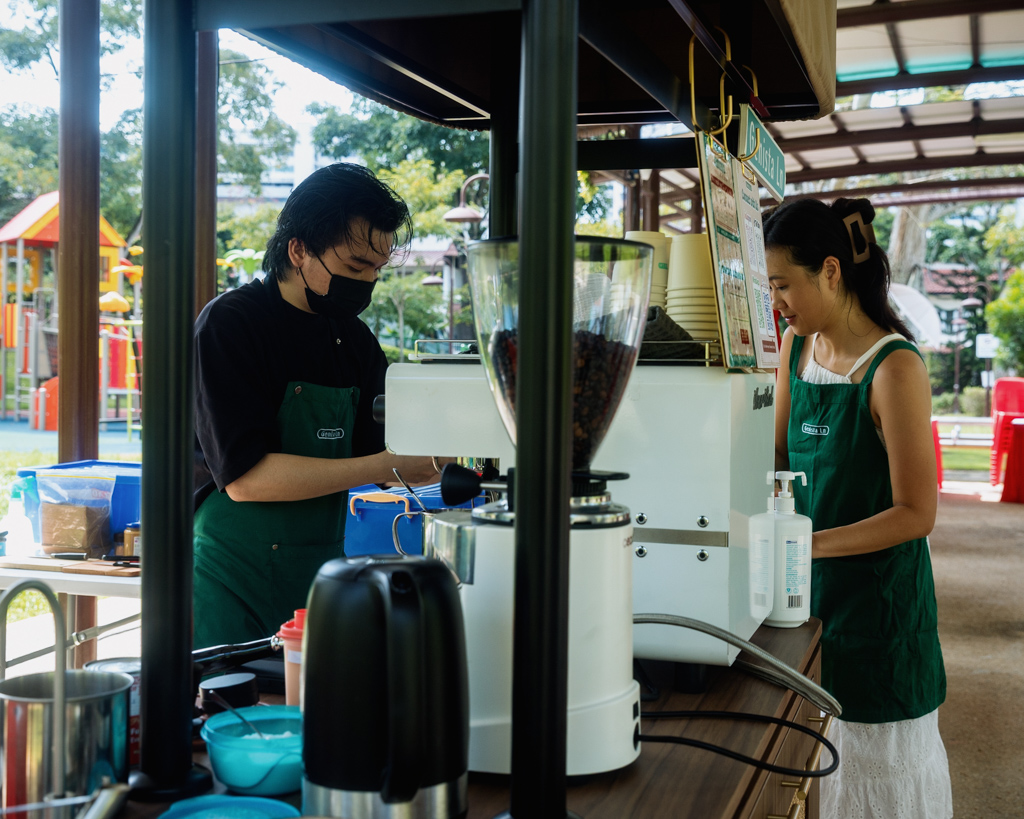
Whilst he respects this tradition, Manfred isn’t afraid to challenge it. Genista Lane Kopi blends the traditional Robusta with more premium Arabica, creating what he calls “a coffee with more ‘xin xian gan’ (fresh taste, or 新鲜感)”. It’s more complex than standard kopitiam fare, but still recognisably Nanyang.
“Robusta doesn’t have much flavour on its own. You get bitterness and a very heavy-bodied, caramelised taste,” he explains. “It’s always roughly the same, so there’s no depth or personality to it.”
This blend makes sourcing complicated. He cannot order a custom blend from a single roastery, requiring separate suppliers that drive up costs. But he’s convinced that the extra complexity is worth it, for the flavour profile he’s trying to achieve.

Genista Lane Kopi’s signature drink is yuan yang (S$3.80 for hot, S$4.20 for iced), perfected after sampling dozens of versions across Singapore. If not done well, the coffee-tea hybrid drink can taste like two separate drinks awkwardly forced together with sugar.
Hence, Manfred took special care to achieve what he calls a “rounded profile”, where the coffee and tea complement — instead of competing with — each other.
“I always thought the name came from the concept of ‘yin yang,’” Manfred says. “But in Cantonese, it actually means ‘Mandarin lovebirds’. Birds that mate for life.”
The menu at Genista Lane Kopi also ventures into rarer territory with drinks such as hor ka sai (S$3.80 for hot, S$4.20 for iced), a drink rarely found in Singapore coffee shops.
His fascination with the beverage began during his trips to Johor Bahru, where he discovered that while many Malaysian versions use cocoa, the original drink calls for Milo.
“The name translates to ‘tiger bites lion’ because it’s an energy-packed drink. The idea is that when you drink it, you’ll have the energy to defeat the king of the jungle,” he adds.
The rendition at Genista Lane Kopi stays true to the original, using Milo for its more distinctive malty profile.
Beyond the bean
Although coffee anchors the concept, Manfred also plays on another traditional item on his menu — kaya toast (from S$3.90 for a kaya-butter shokupan).
His rendition swaps regular bread for sourdough or shokupan (Japanese milk bread), filled with homemade kaya that demands three to four hours of manual labour per batch.
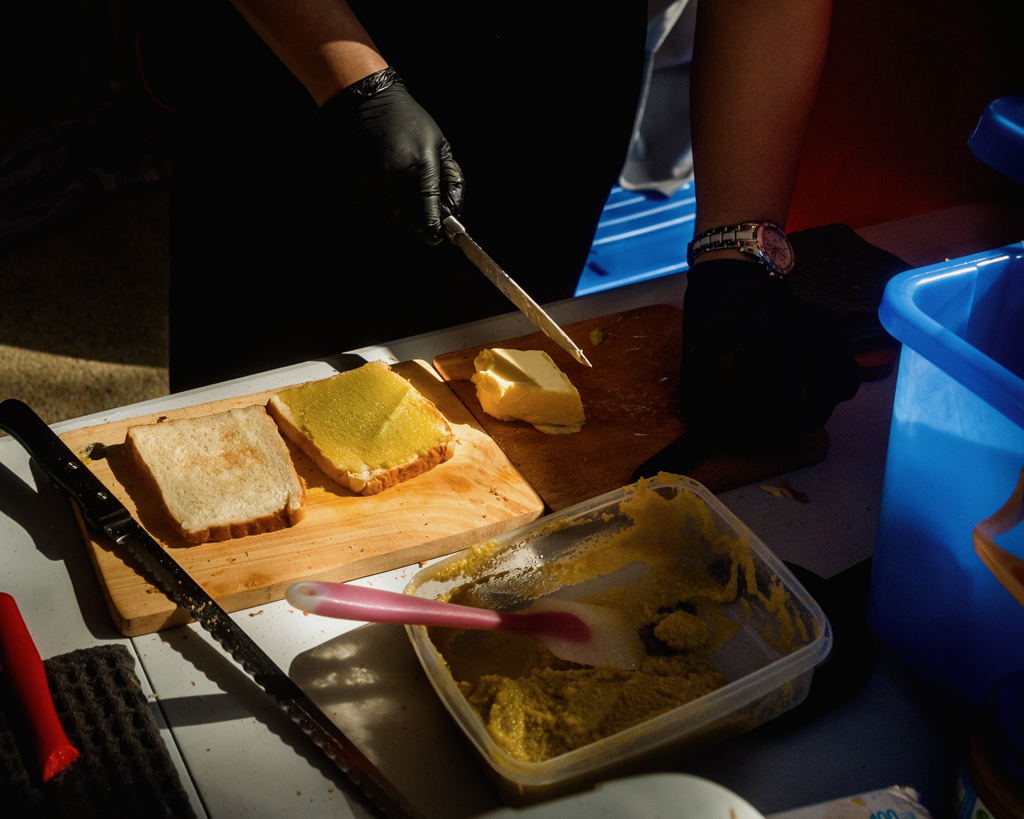
The kaya itself reflects his attention to detail. Manfred uses freshly squeezed pandan, egg yolks only for maximum richness, and minimal sugar to allow the pandan’s natural fragrance to shine through.
The sourdough comes from a now-closed vegan artisanal bakery whose owner Manfred met during his POS installation days. The bread’s natural tartness sparked an epiphany while he was eating sweet and sour pork — why not marry the acidity of sourdough with the sweetness of kaya?
The same precision governs his tea-based drinks. Manfred devoted a lot of research to perfecting his brew.
He maintains the tradition of the drink by using tea dust, made from broken tea leaves and stems ground into a fine powder, but upgraded to more premium grades of tea.
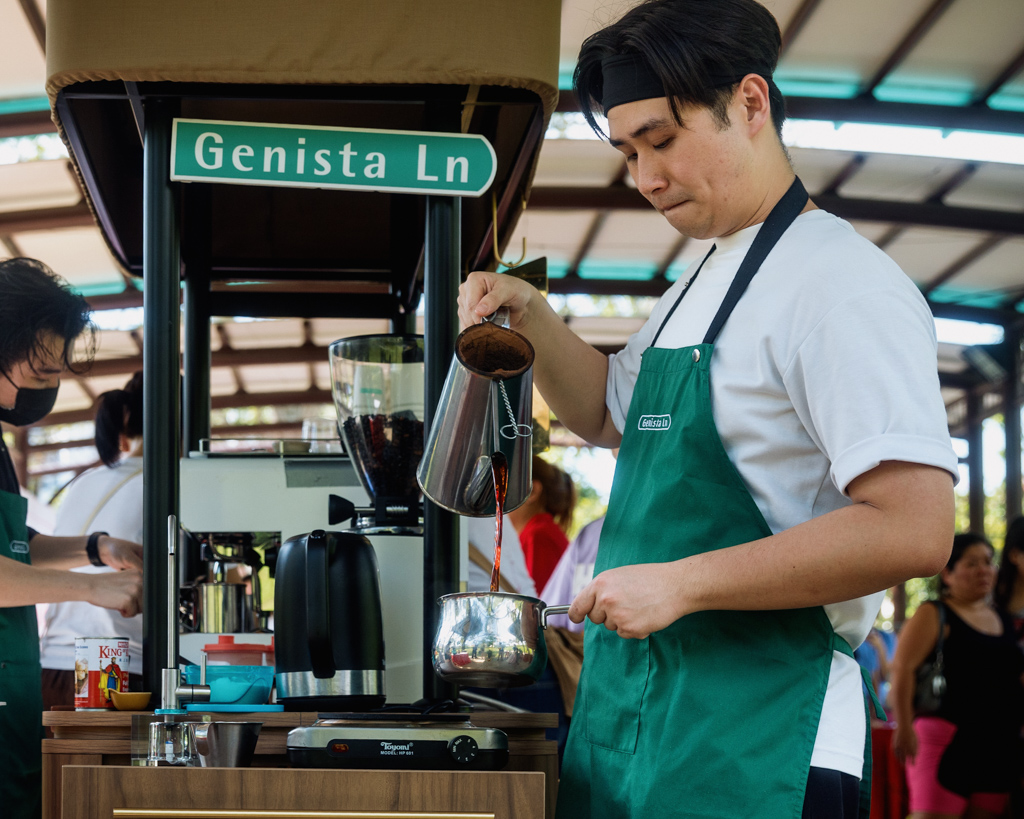
Precision is crucial to maintaining the flavour of the drink. Getting the right temperature and timing matters enormously when it comes to brewing Nanyang tea, as most flavour is extracted in that crucial first pour.
Although heritage is a big part of what Manfred is trying to push towards younger Singaporeans, the quality of his brews still comes first, even if that means sacrificing a little bit of tradition.
“Taste always comes first,” Manfred says. “Heritage only sells if the food is good.”
Genista Lane Kopi 2.0
In a city like Singapore, where traditional coffee culture fights gentrification as the coffee trade slowly fades, Manfred found his middle path, filtering Nanyang coffee culture through his startup methodology and contemporary touch.
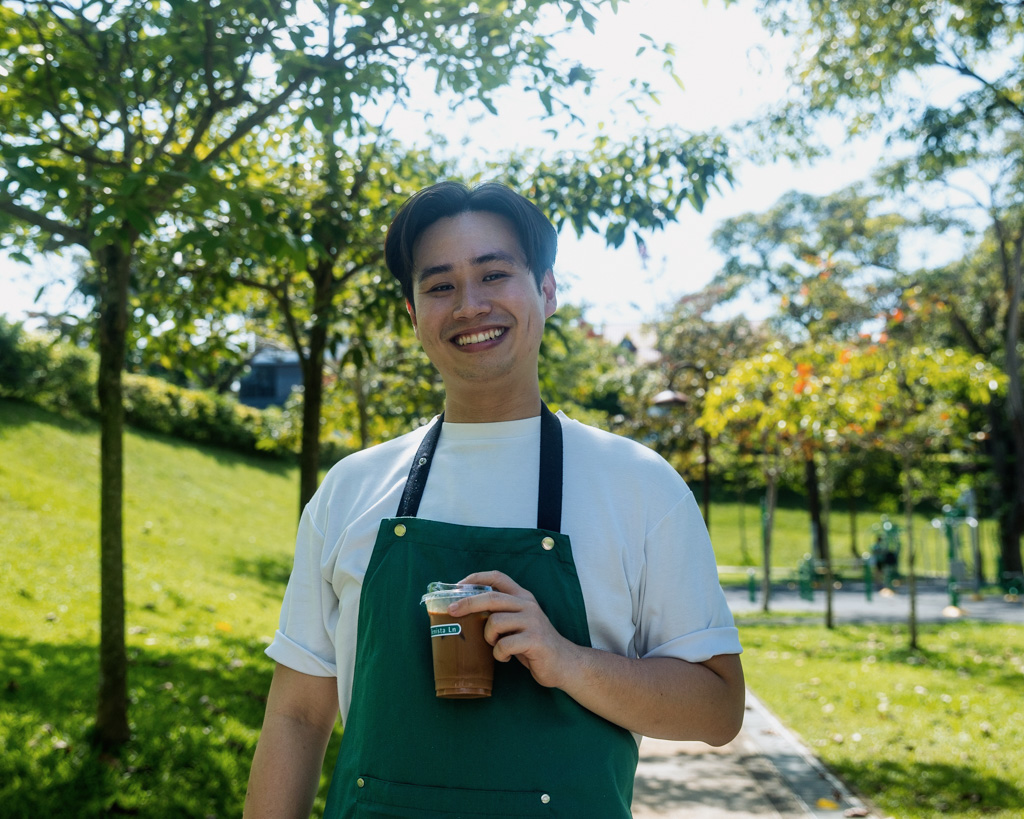
After months of pop-up testing, he has a clearer picture of where Genista Lane Kopi is heading.
Beyond the mobile cart, he has already diversified into home-based operations, fulfilling orders through GrabFood to allow customers to experience its carefully crafted kopi and kaya toast without waiting for the next pop-up event.
“The next step is to scale in terms of selling to retail or doing more events,” Manfred says. “We want the business model to be sustainable, so we can continue to stay in the local F&B scene.”
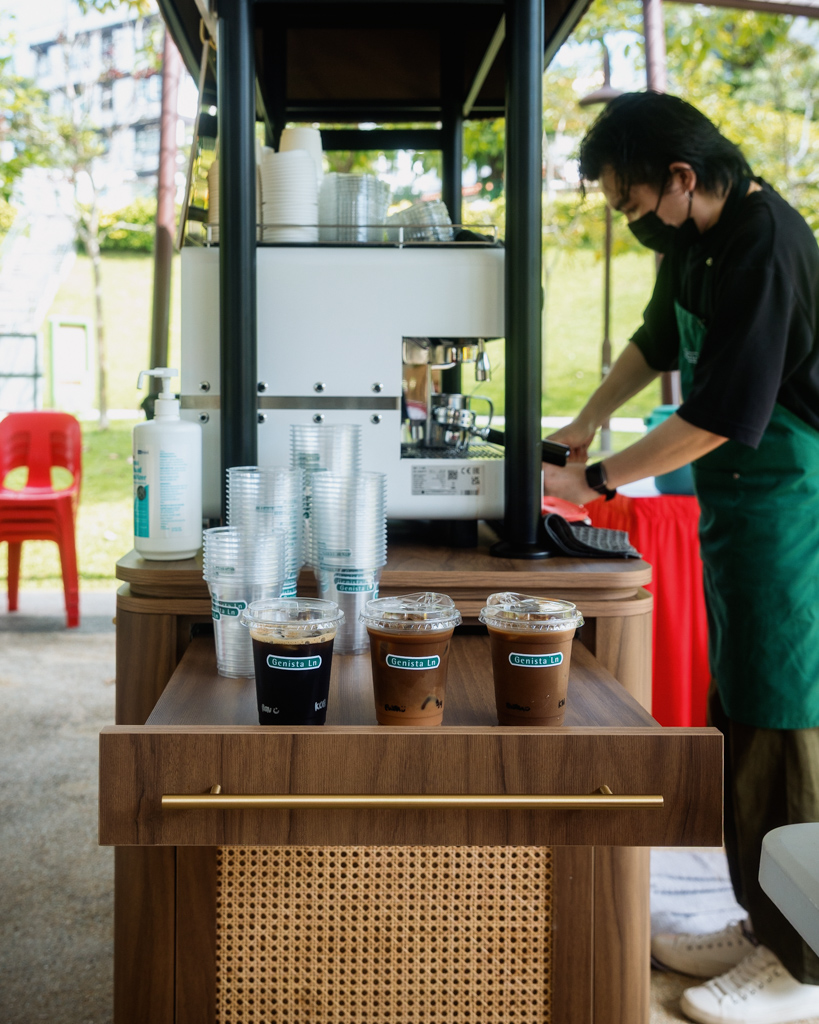
When we spoke to him earlier this year, he shared that merchandise, regular pop-up schedules and a permanent location were in the works while he continued to pound the pavement — literally. He tells us he’s even clocked a good 20,000 steps a day scouting potential locations across the island.
Good news for you if you’ve made it to the end of this article, because after months, Manfred and his team now have a physical grab-and-go outlet at CT Hub 2, which opens officially this weekend (August 23).
For those who drive, we hear a drive-through pick-up experience is in the works — you’ll want to stay tuned to Genista’s socials for more updates on this if a drive-through kopi experience piques your interest!
For more ideas on what to explore, check out our stories on the coolest, most unique mooncake gifts you can get for 2025 and our review of 108 The Nasi Lemak Shop’s Tanjong Pagar outlet!
Tues 8am - 4pm
Wed 8am - 4pm
Thurs 8am - 4pm
Fri 8am - 4pm
Sat 8am - 4pm
- Lavender


